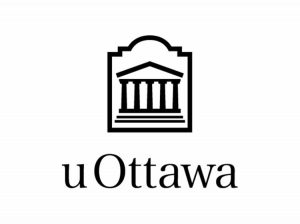Ongoing Projects
My current research projects focus on the following topics:
- Youth Participatory and Collaborative Evaluation,
- Program Evaluation in Diverse Educational Environments,
- Trends in the Canadian Evaluation Industry, and
- Research and Evaluation Methodologies.
Heath, S & Moreau, K. (2018, November). Scoping the empirical evidence of youth participatory and collaborative evaluation. Paper presented at the annual meeting of the American Evaluation Association, Cleveland, OH. Manuscript submitted for publication.
Abstract: Evaluation scholars have conducted numerous research studies on the feasibility and effectiveness of using participatory and collaborative evaluation approaches in various contexts. Yet, participatory and collaborative evaluation approaches typically only involve adults. As a result, there remains a dearth of information regarding the feasibility and effectiveness of using participatory or collaborative evaluation approaches in the evaluation of programs involving youth. The objectives of this paper are to discuss the findings of a scoping review that aimed to: (a) summarize the extent to which participatory and collaborative approaches are used to engage youth in program evaluation, (b) highlight common participatory and collaborative evaluation approaches used to engage youth in program evaluation, and (c) identify research priorities to further investigate the use of participatory and collaborative evaluation approaches for engaging youth in program evaluation. The findings revealed that few documented program evaluations used participatory and collaborative approaches to engage youth in evaluation.
Heath, S (2018, October). Building the empirical evidence for youth participatory and collaborative evaluation. Paper presented at the bi-annual meeting of the European Evaluation Society Conference, Thessaloniki, GR. Manuscript submitted for publication.
Abstract: This paper examines the strengths and benefits of using participatory and collaborative evaluation approaches for involving youth in program evaluation. The use of transformative participatory evaluation, school-based evaluation, and empowerment evaluation for engaging youth in program evaluation are discussed. Findings suggest the need for evaluators to consider resources, stakeholder recruitment, context and abilities when engaging youth in program evaluation activities.
Heath, S. (2019). Using empowerment evaluation with youth. Doctoral dissertation in progress.
Abstract: While some participatory and collaborative evaluation approaches may involve youth in the evaluation of programs and interventions, few evaluations in this area have been formally documented and/or widely published. As a result, there remains a dearth of research on participatory and collaborative evaluations involving youth based on empirical evidence. One such collaborative evaluation approach, Empowerment Evaluation (EE), appears to be well-suited for engaging youth in program evaluation, as participants and co-evaluators. Using both qualitative, quantitative, and mixed methods, EE aims to teach program beneficiaries how to do their own evaluations. This two part mixed methods study seeks to investigate and formally document: (a) the use of EE for programs involving youth or (b) the involvement of youth in the EE of such programs. By investigating and documenting these areas, this study will build on the very limited body of empirical research on EE. As such, it provides important information to evaluators who are embarking on evaluations of programs involving youth, so that they can make informed decisions about the use of EE and the involvement of youth in their evaluation activities.
Heath, S. & Moreau, K. (2019). Participatory evaluation in complex educational environments. Manuscript submitted for publication.
Abstract: This paper discusses the use of participatory evaluation techniques in complex educational environments. The authors reflect on their experiences as evaluators in three case studies where participatory evaluation techniques were utilized to evaluate program effectiveness and efficiency.
Heath, S., Moreau, K. & Nash, A. (2019). Results of a comprehensive literature review of strategies for conducting collaborative evaluation in Indigenous communities. Manuscript in progress.
Abstract: This paper provides the results of an inter-jurisdictional scan of research and grey literature related to the provision and evaluation of culturally-based Indigenous teacher education programs. It is anticipated that this review will draw on scholarly literature, web-sites from relevant institutions, policy documents to present a comprehensive and critical account of programs offered in Canadian, New Zealand and Australian jurisdictions in particular.
Heath, S., & Kane, R. (2019, January). Using Practical Participatory Evaluation to Facilitate Diverse Discussions about School Improvement. Abstract submitted for workshop at the annual meeting of the International Congress for School Effectiveness and Improvement (ICSEI), Stavanger, Norway.
Abstract: Program evaluation provides a systematic method of inquiry for making judgements about the merit and worth of programs to support program decision-making. Participatory and collaborative evaluation approaches are popular among evaluators (i.e., those conducting evaluations) and program stakeholders (i.e., those who have a stake or interest in a program). Using participatory and collaborative evaluation approaches, stakeholders, including marginalized populations, are engaged in the design, data collection, interpretation, and reporting of evaluation projects. One form of participatory evaluation is Practical Participatory Evaluation (PPE), which encourages the deep involvement of diverse stakeholder groups in the discussion of organizational challenges and solutions. In this workshop participants will learn about the use of PPE for the purposes of improving school efficiency and effectiveness. The workshop will use informal discussion groups to understand PPE in the context of school improvement and interactive mini-tutorials to demonstrate how to facilitate practical participatory evaluation workshops for the purposes of school improvement using two essential evaluation tools: 1) logic models and 2) evaluation matrices. Through participation in this workshop participants will gain an intermediate understanding of participatory evaluation methods and how to apply such methods to improve upon what works well (and not so well) in their educational environments.
Lahey, R., Elliott, C., & Heath, S. (in press). The evolving market for systematic evaluation in Canada. New Directions for Evaluation.
Elliot, C & Heath, S. (2018, October). Small but mighty? The market for evaluation in the Canadian Not-for-Profit sector. Paper presented at the bi-annual meeting of the European Evaluation Society Conference, Thessaloniki, GR.
Heath, S & Elliot, C. (2019). Small but mighty: Understanding the nature and influence of developmental evaluation in the Canadian ‘informal’ evaluation sector. Manuscript submitted for publication.
Heath, S. (2019). Debating pragmatism in mixed methods research on program evaluation. Manuscript submitted for publication.
Debates about the philosophical foundations of mixed methods permeate the fields of education and program evaluation. Pragmatism is often used as an epistemology for mixed methods research on program evaluation. This paper discusses the use of pragmatism as an epistemology for research on program evaluation. The benefits and challenges of using a pragmatic approach for research on program evaluation are explored. Through the use of specific examples, the author argues that the benefits of using this epistemology for mixed methods research on program evaluation outweigh the challenges.
University of Ottawa
University of Ottawa’s Centre for Research on Educational and Community Services (CRECS).

